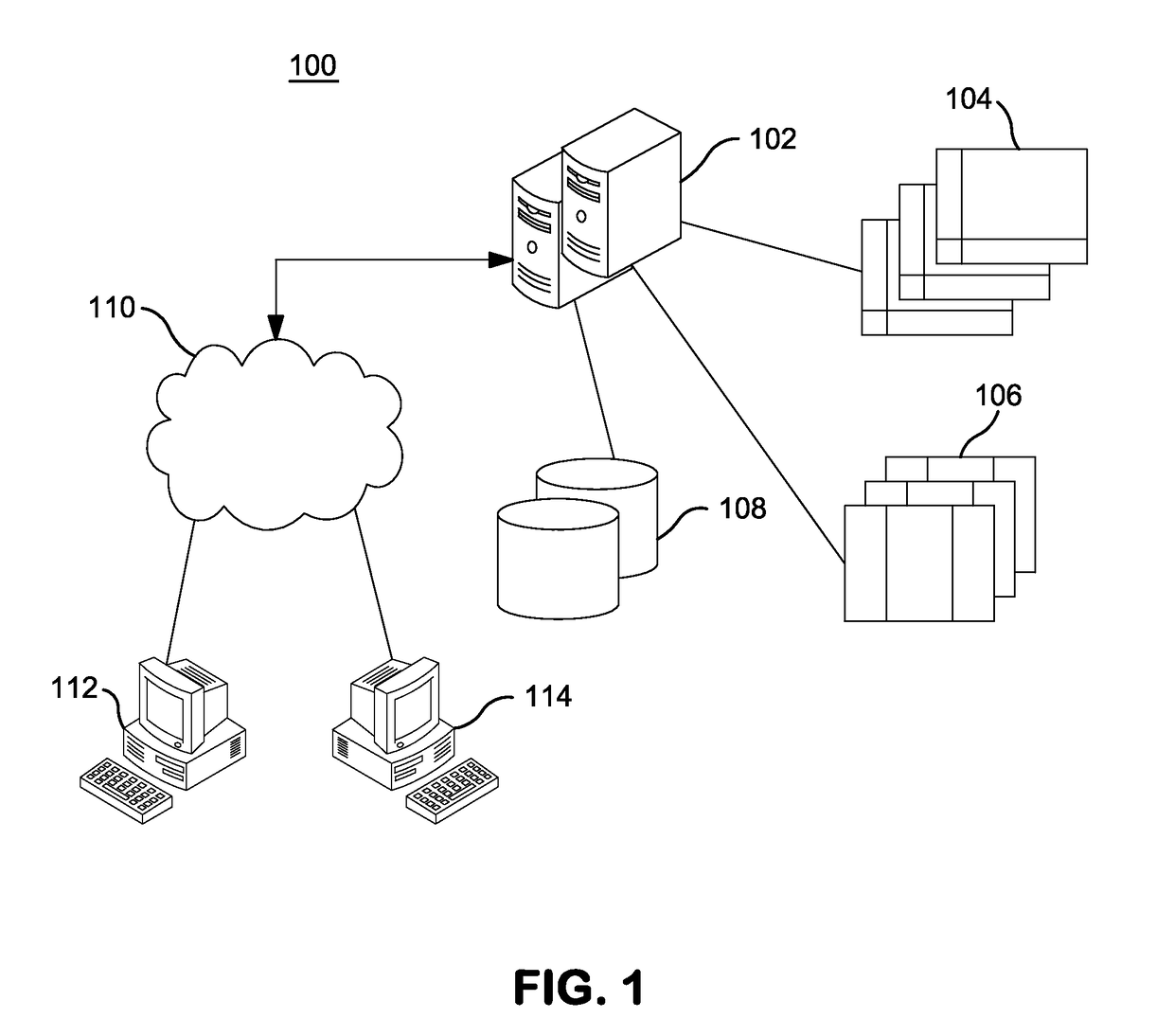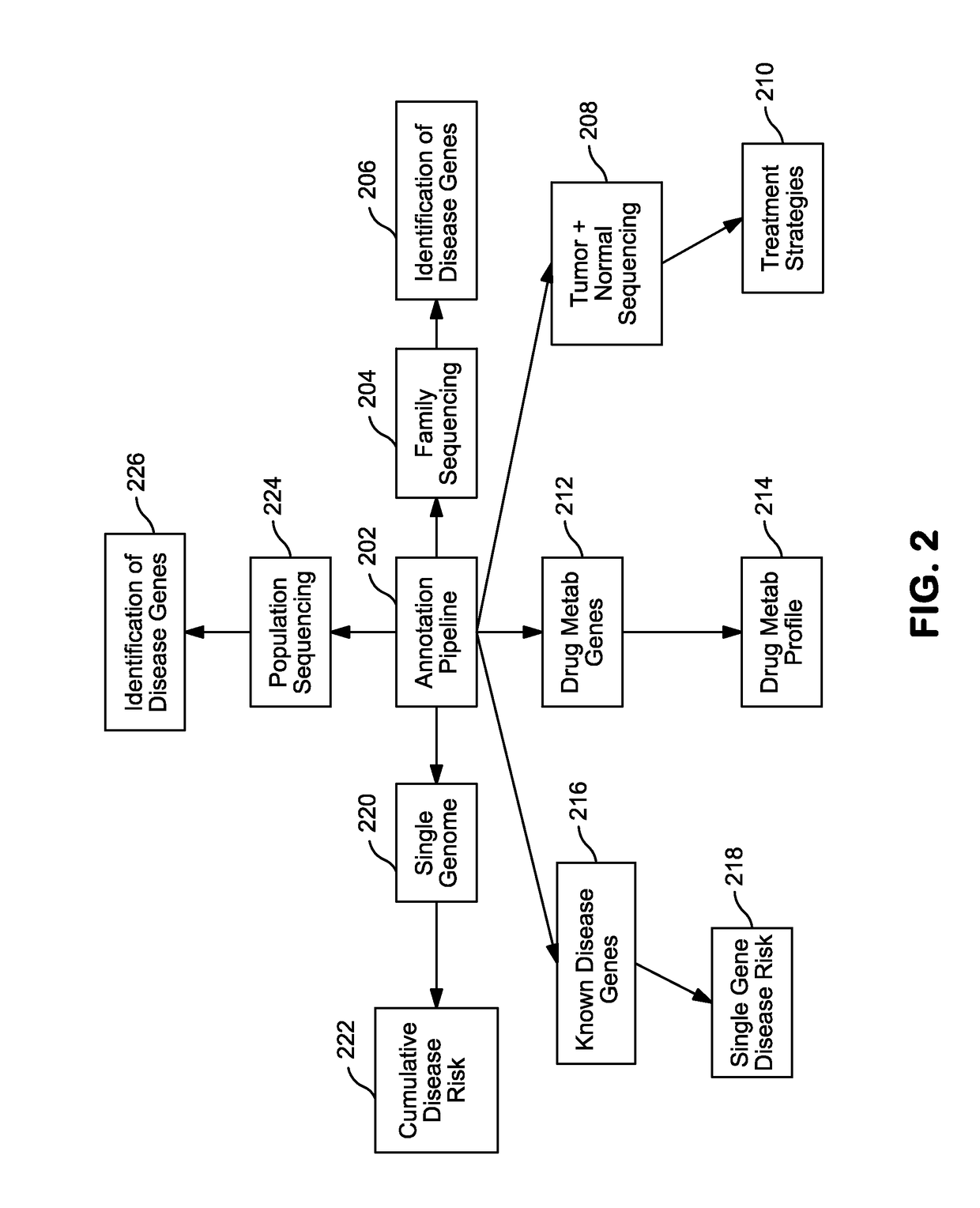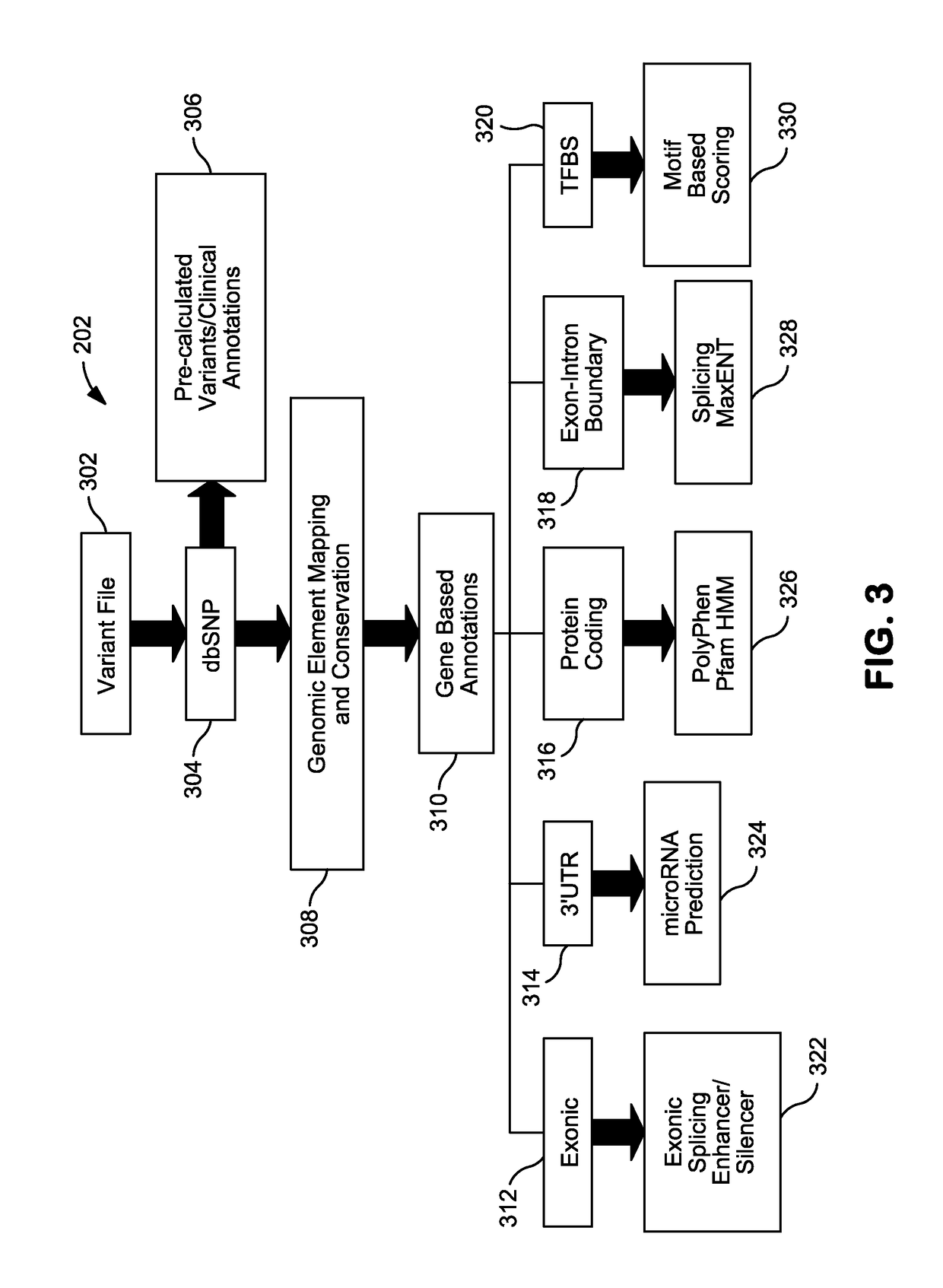Systems and methods for genomic annotation and distributed variant interpretation
a technology of genome annotation and variant interpretation, applied in the field of dna sequencing, can solve the problems of computational burden, difficult to interpret the massive number of genetic variants generated by any sequencing project, and difficult to achieve the effect of reducing the computational burden
- Summary
- Abstract
- Description
- Claims
- Application Information
AI Technical Summary
Benefits of technology
Problems solved by technology
Method used
Image
Examples
example 1
ome Sequence Data from the Complete Genomics, Inc. Public Domain Repository
[0179]Publicly available complete genome sequence data was obtained on 69 individuals of high quality (˜60× coverage, ˜97% bases called) produced by Complete Genomics, Inc. (CGI) by downloading data from the company's website (http: / / www.completegenomics.com / sequence-data / download-data / ). The assembly of the genomes as well as variant calling for them has been described in the literature. (Drmanac et al., 2010, Roach et al., 2010)
[0180]The genotypes from the available “MasterVar Beta” files provided by CGI were directly used. Additional filtering steps for the analysis of genotypes beyond those that went into the construction of the public domain files were not required.
[0181]The 69 individual genomes consisted of 22 individuals of Northern European ancestry (abbreviated as CE for the CEPH or CEU HapMap Population), 10 individuals of Yoruban ancestry (YR), 5 individuals each of Mexican (ME) and African ancest...
example 2
Assessment
[0184]The genetic background similarity of the 69 individual genomes downloaded from the CGI website was assessed, in addition to the single independently-sequenced European female's genome, by constructing identity-by-state (IBS) allele sharing similarity matrices using 16,411 markers which had also been genotyped on 4,123 individuals in various public domain databases for whom ancestry was known. IBS allele was also calculated sharing matrices based on 19,208,882 variants determined from the whole genome sequencing for the 52 individuals ultimately used on the analyses in addition to the parents in the Puerto Rican trio.
[0185]Multidimensional scaling (MDS) analysis was then applied to the sharing matrices to determine patterns in genetic background similarity of the individuals. FIG. 18A and FIG. 18B depict the first two PCs for the allele sharing determined through the use of the 16,411 markers genotyped on the 4,123 reference individuals as well. FIG. 19 depicts the fi...
example 3
llele Determination
[0186]To catalog the position-specific differences (i.e., variants) between the 52 genomes two different strategies were considered. First, each genome was compared to the human genome reference (version hg18). Second, the ancestral allele of each variant was then determined by comparing the genomes to the available chimp genome reference.
Human Reference Allele Determination
[0187]The sequence position of each variant site relative build hg18 of the human genome provided on the UCSC browser was determined. This was done for variant types that could be determined from the CGI variant files in the public domain, including SNVs, small insertion and deletion variants and multinucleotide variants (i.e., small stretches of sequence where the adjacent nucleotides present differ from the reference genome). Thus, the number and type of ‘non-reference’ variants possessed by each of the 52 individual genomes studied was determined. Large structural variation, large copy numbe...
PUM
 Login to View More
Login to View More Abstract
Description
Claims
Application Information
 Login to View More
Login to View More - R&D
- Intellectual Property
- Life Sciences
- Materials
- Tech Scout
- Unparalleled Data Quality
- Higher Quality Content
- 60% Fewer Hallucinations
Browse by: Latest US Patents, China's latest patents, Technical Efficacy Thesaurus, Application Domain, Technology Topic, Popular Technical Reports.
© 2025 PatSnap. All rights reserved.Legal|Privacy policy|Modern Slavery Act Transparency Statement|Sitemap|About US| Contact US: help@patsnap.com



